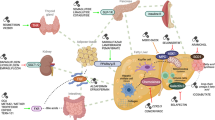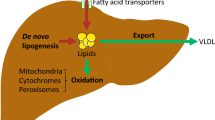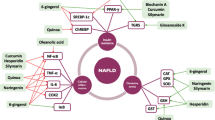Abstract
Stearate is an 18-carbon saturated fatty acid found in many foods in the western diet, including beef and chocolate. Stearate has been shown to have anti-cancer properties during early stages of neoplastic progression. However, previous studies have not investigated the effect of dietary stearate on breast cancer metastasis. In this study, we present evidence that exogenously supplied dietary stearate dramatically reduces the size of tumors that formed from injected human breast cancer cells within the mammary fat pads of athymic nude mice by approximately 50% and partially inhibits breast cancer cell metastasis burden in the lungs in this mouse model system. This metastatic inhibition appears to be independent of primary tumor size, as stearate fed animals that had primary tumors comparable in size to littermates fed either a safflower oil enriched diet or a low fat diet had reduced lung metastasis. Also stearate fed mice sub-groups had different primary tumor sizes but no difference in metastasis. This anti-metastasis effect may be due, at least in part, to the ability of stearate to induce apoptosis in these human breast cancer cells. Overall, this study suggests the possibility of dietary manipulation with selected long-chain saturated fatty acids such as stearate as a potential adjuvant therapeutic strategy for breast cancer patients wishing to maximize the suppression of metastatic disease.






Similar content being viewed by others
Abbreviations
- DHA:
-
Docosahexaenoic acid
- EPA:
-
Eicosapentaenoic acid
- NK:
-
Natural kill T cells
References
Welsch CW (1992) Relationship between dietary fat and experimental mammary tumorigenesis: a review and critique. Cancer Res 52:2040s–2048s
Lee MM, Lin SS (2000) Dietary fat and breast cancer. Annu Rev Nutr 20:221–248. doi:10.1146/annurev.nutr.20.1.221
Rose DP, Connolly JM, Liu XH (1995) Effects of linoleic acid and gamma-linolenic acid on the growth and metastasis of a human breast cancer cell line in nude mice and on its growth and invasive capacity in vitro. Nutr Cancer 24:33–45
Rose DP, Connolly JM, Liu XH (1994) Effects of linoleic acid on the growth and metastasis of two human breast cancer cell lines in nude mice and the invasive capacity of these cell lines in vitro. Cancer Res 54:6557–6562
Rose DP, Hatala MA, Connolly JM, Rayburn J (1993) Effect of diets containing different levels of linoleic acid on human breast cancer growth and lung metastasis in nude mice. Cancer Res 53:4686–4690
Rose DP, Connolly JM, Rayburn J, Coleman M (1995) Influence of diets containing eicosapentaenoic or docosahexaenoic acid on growth and metastasis of breast cancer cells in nude mice. J Natl Cancer Inst 87:587–592. doi:10.1093/jnci/87.8.587
Rose DP, Connolly JM (1993) Effects of dietary omega-3 fatty acids on human breast cancer growth and metastases in nude mice. J Natl Cancer Inst 85:1743–1747. doi:10.1093/jnci/85.21.1743
Grundy SM (1994) Influence of stearic acid on cholesterol metabolism relative to other long-chain fatty acids. Am J Clin Nutr 60:986S–990S
Wickramasinghe NS, Jo H, McDonald JM, Hardy RW (1996) Stearate inhibition of breast cancer cell proliferation. A mechanism involving epidermal growth factor receptor and G-proteins. Am J Pathol 148:987–995
Hardy S, El-Assaad W, Przybytkowski E, Joly E, Prentki M, Langelier Y (2003) Saturated fatty acid-induced apoptosis in MDA-MB-231 breast cancer cells. A role for cardiolipin. J Biol Chem 278:31861–31870. doi:10.1074/jbc.M300190200
Singh RK, Hardy RW, Wang MH, Williford J, Gladson CL, McDonald JM, Siegal GP (1995) Stearate inhibits human tumor cell invasion. Invasion Metastasis 15:144–155
Tinsley IJ, Schmitz JA, Pierce DA (1981) Influence of dietary fatty acids on the incidence of mammary tumors in the C3H mouse. Cancer Res 41:1460–1465
Bennett AS (1984) Effect of dietary stearic acid on the genesis of spontaneous mammary adenocarcinomas in strain A/ST mice. Int J Cancer 34:529–533. doi:10.1002/ijc.2910340416
Habib NA, Wood CB, Apostolov K, Barker W, Hershman MJ, Aslam M, Heinemann D, Fermor B, Williamson RC, Jenkins WE et al (1987) Stearic acid and carcinogenesis. Br J Cancer 56:455–458
Welch DR (2006) Do we need to redefine a cancer metastasis and staging definitions? Breast Dis 26:3–12
Steeg PS (2006) Tumor metastasis: mechanistic insights and clinical challenges. Nat Med 12:895–904. doi:10.1038/nm1469
Spector AA, Hoak JC (1969) An improved method for the addition of long-chain free fatty acid to protein solutions. Anal Biochem 32:297–302. doi:10.1016/0003-2697(69)90089-X
Price JE, Polyzos A, Zhang RD, Daniels LM (1990) Tumorigenicity and metastasis of human breast carcinoma cell lines in nude mice. Cancer Res 50:717–721
Fermor BF, Masters JR, Wood CB, Miller J, Apostolov K, Habib NA (1992) Fatty acid composition of normal and malignant cells and cytotoxicity of stearic, oleic and sterculic acids in vitro. Eur J Cancer 28A:1143–1147. doi:10.1016/0959-8049(92)90475-H
Rose DP, Connolly JM (2000) Regulation of tumor angiogenesis by dietary fatty acids and eicosanoids. Nutr Cancer 37:119–127. doi:10.1207/S15327914NC372_1
Harris RE, Robertson FM, Abou-Issa HM, Farrar WB, Brueggemeier R (1999) Genetic induction and upregulation of cyclooxygenase (COX) and aromatase (CYP19): an extension of the dietary fat hypothesis of breast cancer. Med Hypotheses 52:291–292. doi:10.1054/mehy.1998.0009
Connolly JM, Liu XH, Rose DP (1996) Dietary linoleic acid-stimulated human breast cancer cell growth and metastasis in nude mice and their suppression by indomethacin, a cyclooxygenase inhibitor. Nutr Cancer 25:231–240
Chen J, Stavro PM, Thompson LU (2002) Dietary flaxseed inhibits human breast cancer growth and metastasis and downregulates expression of insulin-like growth factor and epidermal growth factor receptor. Nutr Cancer 43:187–192. doi:10.1207/S15327914NC432_9
Hardman WE, Sun L, Short N, Cameron IL (2005) Dietary omega-3 fatty acids and ionizing irradiation on human breast cancer xenograft growth and angiogenesis. Cancer Cell Int 5:12. doi:10.1186/1475-2867-5-12
Hardman WE (2007) Dietary canola oil suppressed growth of implanted MDA-MB 231 human breast tumors in nude mice. Nutr Cancer 57:177–183
Fujimoto Y, Yonemura T, Sakuma S (2008) Stearic acid potently modulates the activity of cyclooxygenase-1, but not cyclooxygenase-2, in the form of its CoA ester. Prostaglandins Leukot Essent Fatty Acids 78:81–84. doi:10.1016/j.plefa.2007.10.029
Artwohl M, Lindenmair A, Sexl V, Maier C, Rainer G, Freudenthaler A, Huttary N, Wolzt M, Nowotny P, Luger A and Baumgartner-Parzer SM (2008) Different mechanisms of saturated versus polyunsaturated free fatty acid-induced apoptosis in human endothelial cells. J Lipid Res
Artwohl M, Roden M, Waldhausl W, Freudenthaler A, Baumgartner-Parzer SM (2004) Free fatty acids trigger apoptosis and inhibit cell cycle progression in human vascular endothelial cells. FASEB J 18:146–148
MacDonald HR, Lees RK, Bron C, Sordat B, Miescher G (1987) T cell antigen receptor expression in athymic (nu/nu) mice. Evidence for an oligoclonal beta chain repertoire. J Exp Med 166:195–209. doi:10.1084/jem.166.1.195
Talmadge JE, Donkor M, Scholar E (2007) Inflammatory cell infiltration of tumors: Jekyll or Hyde. Cancer Metastasis Rev 26:373–400. doi:10.1007/s10555-007-9072-0
Lima TM, Kanunfre CC, Pompeia C, Verlengia R, Curi R (2002) Ranking the toxicity of fatty acids on Jurkat and Raji cells by flow cytometric analysis. Toxicol in vitro 16:741–747. doi:10.1016/S0887-2333(02)00095-4
Jeffery NM, Sanderson P, Newsholme EA, Calder PC (1997) Effects of varying the type of saturated fatty acid in the rat diet upon serum lipid levels and spleen lymphocyte functions. Biochim Biophys Acta 1345:223–236
Acknowledgments
This work was funded by Grant Number R21 AT 001636 (RWH) from the National Center for Complementary and Alternative Medicine (NCCAM). Its contents are solely the responsibility of the authors and do not necessarily represents of the official views of the NCCAM, or the National Institutes of Health. This work was also funded in part by The Beef Checkoff.
Author information
Authors and Affiliations
Corresponding author
Rights and permissions
About this article
Cite this article
Evans, L.M., Toline, E.C., Desmond, R. et al. Dietary stearate reduces human breast cancer metastasis burden in athymic nude mice. Clin Exp Metastasis 26, 415–424 (2009). https://doi.org/10.1007/s10585-009-9239-x
Received:
Accepted:
Published:
Issue Date:
DOI: https://doi.org/10.1007/s10585-009-9239-x




